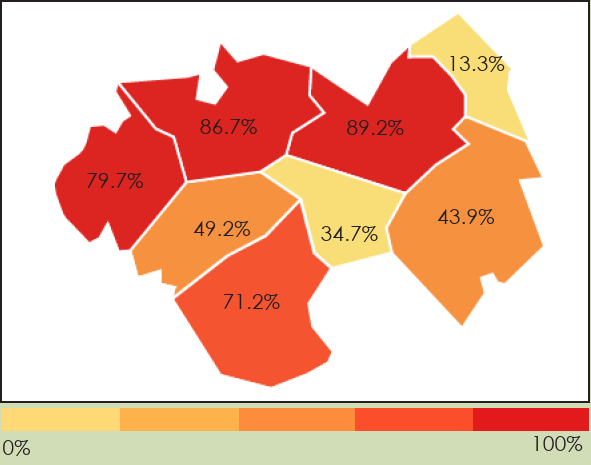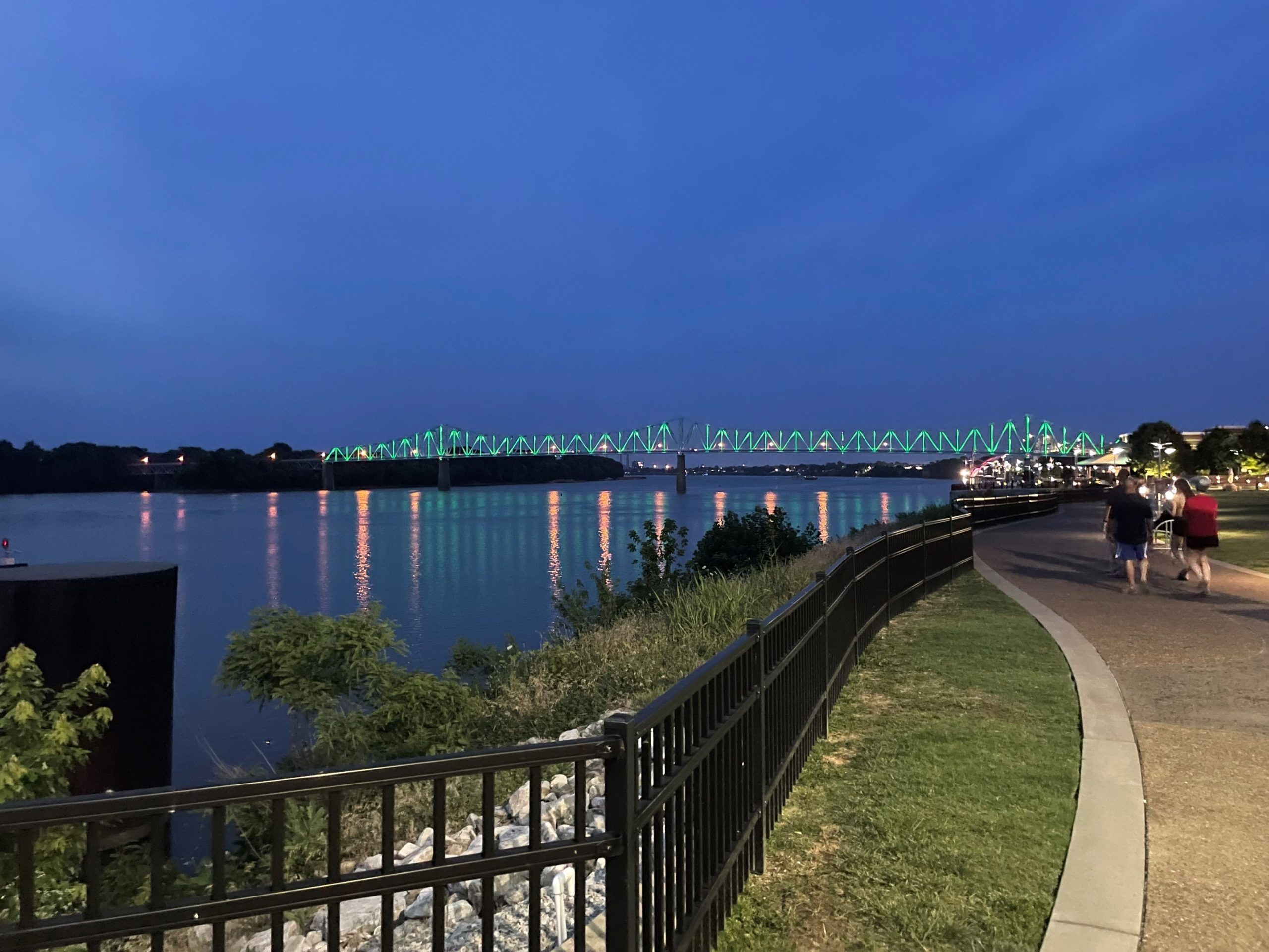Broadband
Fixed Broadband Availability
Percent of population with access to fixed broadband service at 25/3 MBPS (FCC minimum definition of broadband) or higher advertised speeds

Broadband Health in America, Broadband Gaps in America
Access to reliable internet has been an issue since its creation, but the COVID-19 pandemic highlighted the issue. With the exponential increase in working and learning from home and online commerce, lack of broadband impacted the entire country. Elected officials, citizens, and community leaders in the GRADD region, consistently raise the issue of unreliable broadband. According to the FCC, in 2018 Hancock County had the least access to broadband in the region.
Kenergy, an electric cooperative serving the region, offered free Wi-Fi to the 14 county school districts in its service area starting March 2021. The Henderson, Owensboro, and Hawesville offices set up password protected Wi-Fi locations to which only students had access. AT&T offered low-income household internet for $10 per month. Spectrum offered free internet for school-aged children.
The American Rescue Plan Act (ARPA) earmarked funds for broadband infrastructure. The guidance encourages states, counties, and cities bring speeds to 100mbps both up and downstream.
Utilities
The Kentucky Public Service Commission (KPSC) issued an order to halt late fees and disconnections for non-payment on March 8, 2020. Governor Beshear issued an executive order (EO 2020-323) to do the same for utilities not regulated by KPSC. The moratorium from KPSC ended October 20, 2020 and the statewide moratorium ended November 6, 2020. With this termination, Governor Beshear’s executive order designated $15 million in COVID-19 relief funds for the Healthy at Home Utility Relief Fund, which provided relief for Kentuckians at risk for disconnection from natural gas, electric, water, and wastewater services. Utilities were required to create payment plans no shorter than six months and waive late fees until December 31, 2020.
Municipally owned utilities took losses on some household accounts. Some residents were unable to pay due to loss of employment, furlough, or illness directly caused by COVID-19. Other households saw the moratorium on disconnections as a reason to simply not pay their bills. In some instances, renters moved out without paying the bills, leaving utilities and landlords to bear the losses.
Cleaner Water Program
American Rescue Plan Act (ARPA) funds served various strategic investment projects by local governments, some of which earmarked for infrastructure upgrades. Kentucky distributed these funds with the Cleaner Water Program. GRADD communities used these funds for long-term projects to increase the resilience of their water and wastewater infrastructure. Over $7.9 million across 35 projects was distributed to GRADD communities. Most Cleaner Water projects would never have been possible without ARPA.
Hartford local officials sought funding for years to reduce the excessive capacity of the one million gallon tank to a more reasonable 35,000 gallons. ARPA funding finally made it possible, and citizens will soon see improved water quality and reliability.
ARPA funds will also replace the Main Street waterline in Uniontown. This waterline represented a danger in the community due to regular leaking, including five water leaks in 2020 alone. The replacement will install a new PVC pipe and remove the old 1,200 linear feet of cast iron pipe.
